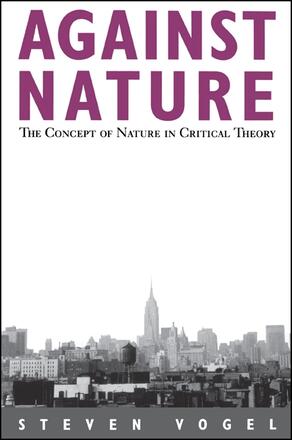
Against Nature
The Concept of Nature in Critical Theory
Alternative formats available from:
Argues that the tradition of critical theory has had significant problems dealing with the concept of nature and that their solutions require taking seriously the idea of nature as socially constructed.
Description
Against Nature examines the history of the concept of nature in the tradition of Critical Theory, with chapters on Lukacs, Horkheimer and Adorno, Marcuse, and Habermas. It argues that the tradition has been marked by significant difficulties with respect to that concept; that these problems are relevant to contemporary environmental philosophy as well; and that a solution to them requires taking seriously--and literally--the idea of nature as socially constructed.
Steven Vogel is Professor of Philosophy at Denison University.
Reviews
"Vogel's book lies at the intersection of three important fields: Marxist Critical Theory, postempiricist philosophy and sociology of science, and environmental ethics. It is truly excellent. The argument is original and convincing. The project of relating the Western Marxist tradition to contemporary trends in philosophy of science and environmental ethics enriches all three fields. "—Andrew Feenberg, San Diego State University
"This is a stunningly good piece of work on a crucial problem within an influential tradition in twentieth-century philosophy. Vogel's book promises to be the definitive scholarly assessment of the problems and opportunities facing a Critical Theory of nature and science. Vogel sorts out the issues clearly and persuasively, showing how a fundamental, debilitating dilemma recurs throughout the tradition, yet also sympathetically displaying the strengths and accomplishments of each of the major figures, and suggesting a persuasive approach to avoiding the dilemma without abandoning the tradition's most basic commitments. All of the Critical Theorists are notoriously difficult writers, yet Vogel's own prose is a model of how to write philosophy accessibly. "—Joseph Rouse, Wesleyan University
"Vogel's book will immediately become the center of productive debate, since he uses such forceful arguments to slay a number of sacred cows. It will make him a major figure in his field. "—Michael Zimmerman, Tulane University
"In this reader's opinion, this book meets the highest standards of scholarly excellence, argumentative rigor, interpretive originality, and literary accomplishment. "—David Ingram, Loyola University of Chicago